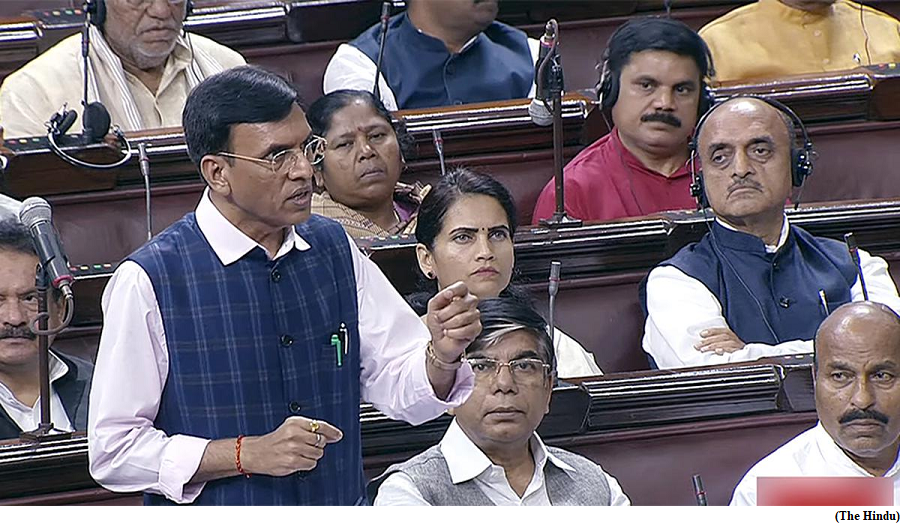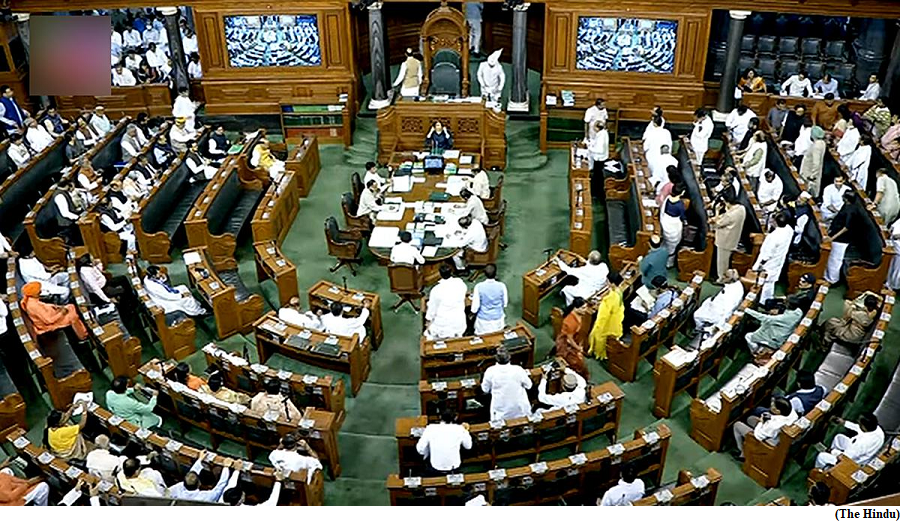Parliament passes National Nursing and Midwifery Commission (NNMC) Bill, 2023 (GS Paper 2, Health)

Why in news?
- In a landmark move aimed at bringing transformative changes to the nursing education and practice landscape, the Parliament has passed the National Nursing and Midwifery Commission (NNMC) Bill, 2023.
- The Act will replace the existing Indian Nursing Council with a modern regulatory structure, marking a significant legislative reform in the sector.
Key Highlights:
Establishment of National and State Commissions:
- Under the NNMC Act, a National Nursing and Midwifery Commission and Autonomous Boards at the National level will be established.
- Corresponding State Nursing and Midwifery Commissions will also be set up to regulate and maintain education and service standards, oversee professional conduct, and manage online and live Registers.
Tenure and Accountability:
- One of the pivotal reforms introduced by the Act will be the provision of fixed tenures for members and the chairperson of the Commission, eliminating reappointment and preventing vested interests. This measure ensures transparency and accountability among regulators in the nursing education sector.
- The Act will also grant the government the authority to issue directions to the Commission in the interest of the public.
Uniform Admission Process and Competence:
- The National Commission will implement a standardized admission process to ensure consistency across nursing education.
- It will focus on maintaining the competence of nursing and midwifery professionals to ensure high-quality healthcare services.
Embracing Innovation and Collaboration:
- The NNMC Act will encourage the use of cutting-edge technology and innovation in nursing education.
- The Commission will collaborate with industry and other institutions to foster synergy, excellence, and research in the nursing field.
Development of Soft Skills and Specialized Courses:
- The Act will emphasize on the development of soft skills among registered professionals and recognizes specialized courses and certification programs in nursing and midwifery.
- This move aims to enhance the expertise of nursing professionals in various domains.
Global Mobility and Expertise:
- The NNMC Act will seek to facilitate global mobility and employability of Indian nurses by inviting foreign experts and domain specialists to participate in the National Commission's meetings.
- This international collaboration will contribute to enhancing the skills and expertise of Indian nurses.
National Advisory Council and Coordination:
- The Act will provide for the formation of a National Advisory Council to ensure balanced representation from all states and Union Territories. This Council will offer advice on matters related to nursing education, services, training, and research.
- Additionally, joint sittings with relevant statutory bodies, including the National Medical Commission, Pharmacy Council of India, National Commission for Allied and Healthcare Professions, National Commission of Indian system of Medicine, and National Commission of Homeopathy, will promote a team-based approach to healthcare delivery.
Way Forward:
- It is a crucial milestone that underscores the government's commitment to nurturing a highly skilled and competent nursing workforce, thus ensuring the delivery of quality healthcare services to the nation.
Lok Sabha passes Anusandhan National Research Foundation Bill for research
(GS Paper 2, Health)
Why in news?
- Recently, the Lok Sabha passed the Anusandhan National Research Foundation Bill to set up a national agency to fund research across universities in the country
- Science and Technology Minister Jitendra Singh had introduced the Anusandhan National Research Foundation Bill.

National Research Foundation (NRF):
- The National Research Foundation (NRF) will be set up with a budget of about 50,000 crore for a period of five years, with Rs 10,000 crore from the government, Rs 4,000 crore from the Science and Engineering Research Board (SERB) and Rs 26,000 crore from places like the private sector, from philanthropists or other aid.
- The NRF will focus on creating a policy framework and putting in place regulatory processes that can encourage collaboration and increased spending by the industry on R&D.
The bill seeks to set up different funds –
- the Anusandhan National Research Foundation Fund, for the financing of activities under the Act;
- the Innovation Fund for supporting outstanding creativity in the areas supported by the Foundation;
- the Science and Engineering Research Fund for continuation of the projects and programmes initiated under the Science and Engineering Research Board Act, 2008; and
- one or more Special Purpose Funds for any specific project or research.
Composition:
- It will have a governing board consisting of 15 to 25 eminent researchers and professionals, and it will be headed by the Prime Minister. The Education Minister and the Science and Technology Minister will be the vice presidents of the NRF. There will also be a provision to nominate members to bring in the private sector.
- The proposed foundation will also have an executive council under the principal scientific advisor.
Way Forward:
- It will foster a culture of research and innovation throughout India's universities, colleges, research institutions, and R&D laboratories.



